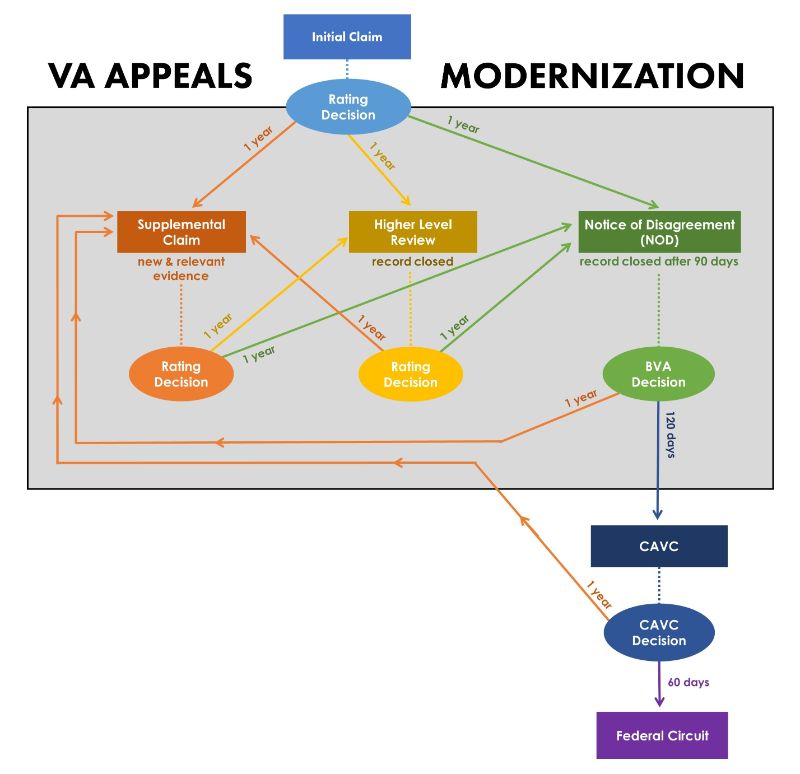What Happens When A Va Appeal Is Remanded
If you're looking for video and picture information linked to the key word you've come to pay a visit to the ideal blog. Our site gives you suggestions for viewing the maximum quality video and image content, hunt and find more informative video content and graphics that match your interests.
comprises one of thousands of video collections from several sources, especially Youtube, therefore we recommend this video for you to see. You can also contribute to supporting this site by sharing videos and graphics that you enjoy on this blog on your social media accounts such as Facebook and Instagram or tell your closest friends share your experiences concerning the simplicity of access to downloads and the information that you get on this site. This blog is for them to stop by this website.

When the Board of Veterans Appeals also known as the Board or the BVA makes a decision on your appeal they can grant deny or remand your claim.
What happens when a va appeal is remanded. Your appeal was remanded by the US. Two issues were remanded. When BVA sends a claim back to the RO its often called a remand. Remands are very common at the BVA with over 40 of all decisions being remands.
When this happens you are essentially being given another chance to argue that you are entitled to VA disability benefits. If the case is remanded it will be returned to the VA. Court of Appeals for Veterans Claims. Your claim will get further development or reconsideration once back at the VARO.
New and material evidence to reopen claim for service connection lumbosacral or cervical strain If this decision changes your disability rating or your eligibility for VA benefits you should see this change made in 1 to 2 months. My thoughts are that the VA Remand is one of the most powerful things that can happen to a case. A common reason for this is the regional office not processing claims correctly. Court Remand appeals are prioritized so that theyre always at the front of the line.
Yes a favorable decision from the BVA is nice but if you are at the BVA then the chances of getting a grant are increasingly small. Its more likely the Court will remand the appeal or affirm the board decision. A remand is not an approval or denial. If you receive a denial from the Board following a CAVC remand you may be able appeal it back to the Court.
BVA remanded decision occur because the VARO must get updated or additional evidence to issue a new decision. BVA decisions that either grants or denies a claim are considered to be final decisions. SC for migraines and sciatic nerve damage. Your claim will get further development or reconsideration once back at the VARO.
This means the Court believes that the VA made a mistake and wants the VA to do it right A remand gives the veteran an opportunity to submit additional evidence. A remand may be necessary if there has been a change in law a worsening of a disability on appeal or the Veteran introduces new evidence or theory of entitlement at the Board. When the Board of Veterans Appeals also known as the Board or the BVA makes a decision on your appeal they can grant deny or remand your claim. The BVA can determine service connection but they cant assign a rating.
What happens now is the AOJ will do what is necessary to implement the grant whether that means a new CP exam or not. If your VA disability appeal is remanded it will be sent back to the VA Regional Office VARO. A Board remand is when the Board sends a claim back to the VA regional office in order to gather more information. When your appeal is remanded the BVA will send your claims file back to the RO regional office where your claim was first adjudicated.
Appeals to CAVC must be filed within 120 days from the mailing date of the Boards decision. A remand decision however is not. Typically each time one of these things happens a rule of law called Duty to Assist DTA is triggered. Along with your file the BVA will also send a list of what you your attorney and the RO need to do before the RO makes a new decision.
And they will do the work requested by the remands. Contact us for a free consultation. If your claim or a specific issue from your claim is remanded it will be sent back to your local VA Regional Office for further evidence collection or for other procedural reasons. The remand requires the Board of Veterans Appeals BVA to fix the specific legal errors it made and issue a new decision.
When the Board of Veterans Appeals remands an appeal it is sent back to the VA regional office for additional development and reconsideration. When a claim is remanded the VAs duty to assist is triggered and often a new examination will be scheduled records will be reexamined or a new medical opinion will be requested. BVA remanded decision occur because the VARO must get updated or additional evidence to issue a new decision. In VAs circular system appeals are remanded for many reasons.
Your appeal will be sent to a judge as soon as its ready for their review. Each remand includes instructions that the regional office must follow before the Board can revisit the claim. The judge will not see anything to do with your appeal again unless the remanded issues denials are continued. Remand orders are usually directed to the VAs Appeals Management Center AMC for action although sometimes claims are referred to the VARO.
If your claim or a specific issue from your claim is remanded it will be sent back to your local VA Regional Office for further evidence collection or for other procedural reasons. A remand occurs when the Board does not believe that it has enough information to make a final decision. Our team of veterans lawyers can help appeal your decision to the Court of Appeals for Veterans Claims. The judge never implements the decision.
If your VA disability appeal is remanded it will be sent back to the VA Regional Office VARO. A remand occurs when the regional office needs to gather additional or updated evidence in order to issue a new decision on a claim.

















